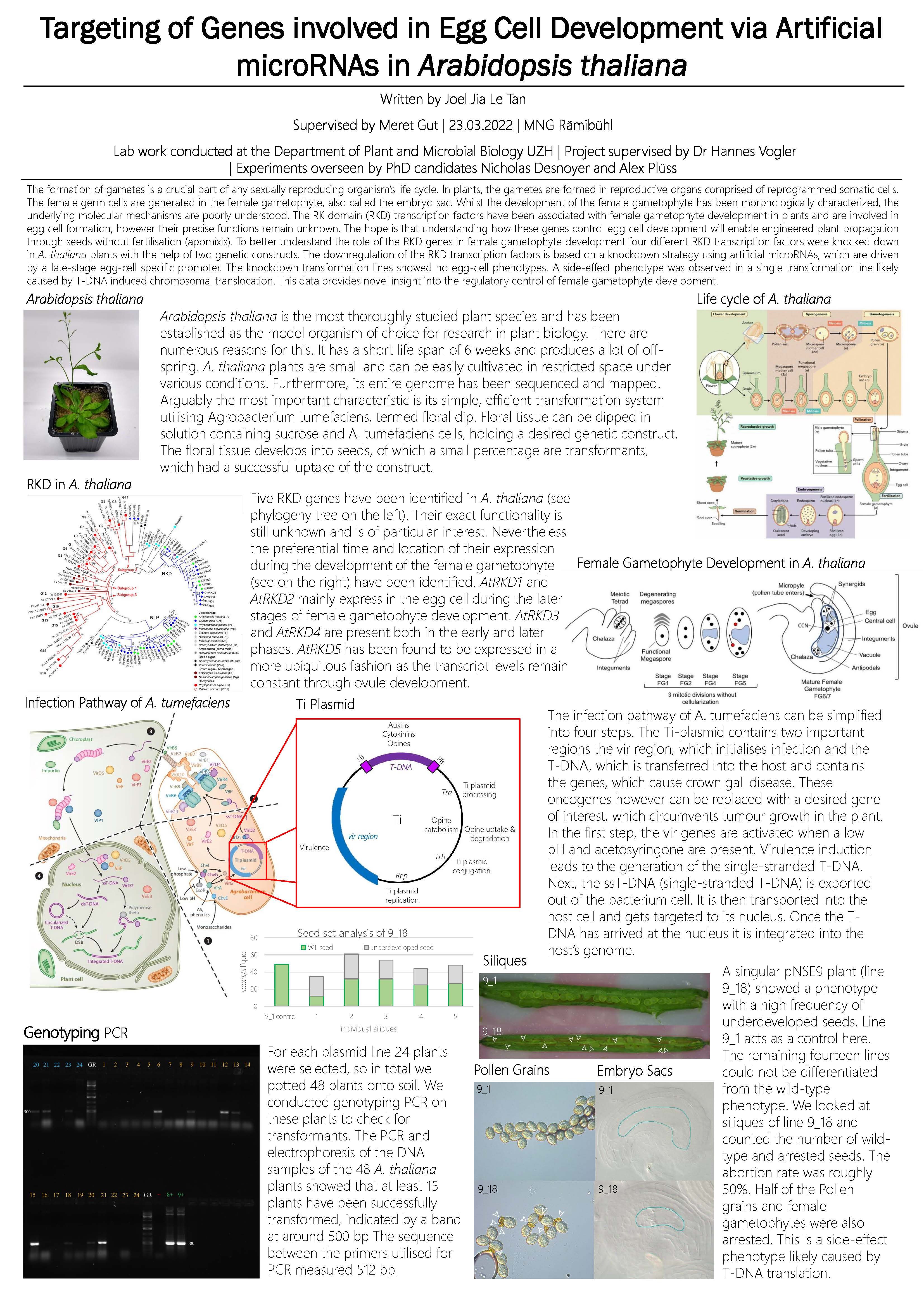2022
Autor/-in:
Tan Joel Jia Le
Targeting of Genes involved in Egg Cell Development via Artificial microRNAs in Arabidopsis thaliana
Meret Gut
Seraina Bötschi
MNG Rämibühl
Fach: Biologie
Abstract
The formation of gametes is a crucial part of any sexually reproducing organism’s life cycle. In plants, the gametes are formed in reproductive organs comprised of reprogrammed somatic cells. The female germ cells are generated in the female gametophyte, also called the embryo sac. Whilst the development of the female gametophyte has been morphologically characterized, the underlying molecular mechanisms are poorly understood. The RK domain (RKD) transcription factors have been associated with female gametophyte development in plants and are involved in egg cell formation, however their precise functions remain unknown. When the AtRKD1 and AtRKD2 genes are ectopically expressed in Arabidopsis thaliana, tissue proliferation and the expression of an egg-cell marker are induced. The hope is that understanding how these genes control egg cell development will enable engineered plant propagation through seeds without fertilisation. In loss-of-function experiments of the singular RKD gene in the liverwort Marchantia polymorpha phenotypes affecting the egg cell have been identified. In A. thaliana however, no such phenotypes could be produced due to a probable functional redundancy amongst its five RKD genes. A. thaliana is an important plant model organism for genetics as genes of interest can easily be inserted into its genome via Agrobacterium tumefaciens, a species of parasitic bacteria. To better understand the role of the RKD genes in female gametophyte development four different RKD transcription factors were knocked down in A. thaliana plants with the help of two genetic constructs. The downregulation of the RKD transcription factors is based on a knockdown strategy using artificial microRNAs, which are driven by a late-stage egg-cell specific promoter. The knockdown transformation lines showed no egg-cell phenotypes. A side-effect phenotype was observed in a single transformation line likely caused by T-DNA induced chromosomal translocation. This data provides novel insight into the regulatory control of female gametophyte development.
